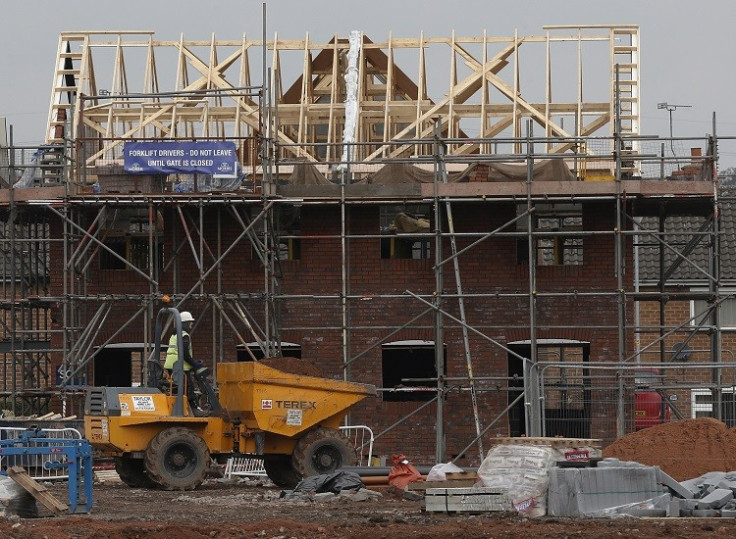UK Housing Bubble: 'Bumper Backlog' of 400,000 Unbuilt Homes with Planning Permission

There are almost 400,000 homes with planning permission waiting to be built, even though the country is suffering from a serious shortage in housing supply.
This backlog had been reduced by just 6,000 during 2012 and now developers are submitting fewer planning applications and taking longer to finish the vital construction work.
It takes an average of 27 months from planning permission being granted before work is finished, seven months longer than in the 2007/08 year.
The revelations come from a study commissioned by the Local Government Association (LGA), which represents the interests of 350 local councils in England, and raise yet more doubts over the impact Chancellor George Osborne's Help to Buy scheme will have on housebuilding.
"The bumper backlog of unbuilt homes and drop in the number of planning applications submitted to councils last year is a worrying sign that the housing market is not yet on the road to long-term recovery," said Councillor Mike Jones, Chairman of the LGA's Environment and Housing Board.
"While there has been progress made, this risks being undermined if we do not find a way to ensure developers keep up with demand."
UK Planning Law
Ministers have attacked the UK's planning system as a bureaucratic nightmare. They are trying to strip away any planning rules deemed unnecessary under the government's broader project the Red Tape Challenge.
However, the LGA said local councils approve nine out of 10 planning applications, the total number of which fell 5% in 2012.
"These figures conclusively show that it is not the planning system holding back the building of much-needed new homes," said Councillor Jones.
"The challenge now lies in actually getting houses built. Government schemes to help buyers access finance risk creating a bubble if there isn't an increase house building to match it."
Osborne's Help to Buy scheme sees aspirant homeowners offered an interest-free equity loan by the government on property purchases worth up to 20% of the total value.
A second part of the scheme will offer banks a government guarantee on consumer mortgages, for a small fee, to encourage more home loan approvals and bring down borrowing costs.
However, the scheme has met with much criticism. Osborne has been accused of playing with fire in the housing market by trying to increase demand by improving the flow of credit when there is not enough supply already - and a property bubble will inevitably inflate.
As prices rise, credit ratings agency Fitch said few new homes would be built and the scheme would instead bloat the profits of builders and banks.
Councils Borrowing Cap
Osborne hopes that stimulating greater demand in the housing market will lead housebuilders to react and construct more affordable homes, to address the imbalance. The chancellor is trying to avoid a big fiscal push on building homes because he has locked himself into a strict austerity programme of public spending cuts.
The LGA said the Treasury should instead lift its borrowing cap on housing investment at local councils, which the study claims would lead to 60,000 more homes being built a year.
"Government has an unrivalled opportunity to create jobs, provide tens of thousands of homes and help the economy without having to find a single extra penny," said Councillor Jones.
"New homes are badly-needed and councils want to get on with building them. The common sense answer is for the Treasury to remove its house building block and let us get on with it."
© Copyright IBTimes 2025. All rights reserved.






















